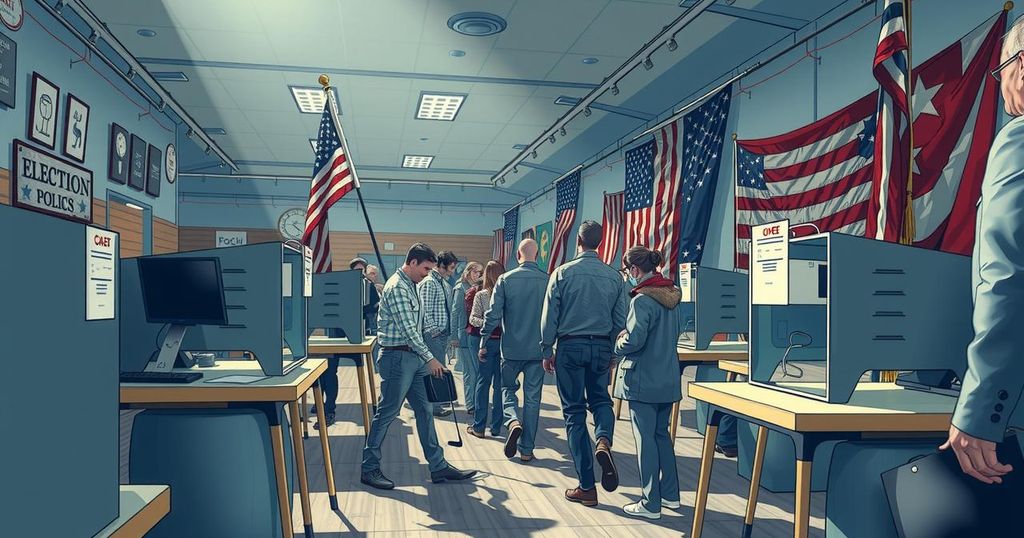The Reality of the Presidency: A Call for Informed Voting

The article underscores the serious and immediate responsibilities awaiting the next president, rather than the abstract concerns often prominent during campaigns. It identifies critical challenges related to international relations, domestic issues, and unforeseen crises that require a leader’s vision and temperament. The article emphasizes the need for voters to choose wisely, as they are not merely selecting an individual but endorsing the values and character that will define the presidency.
As Election Day approaches, the realities associated with the presidency become increasingly apparent. Presidential campaigns often wander into abstract concerns, skirting the gravitas of the office itself. The moment a president takes the oath, they step into a world fraught with immediate and daunting challenges. For instance, during President Barack Obama’s inaugural address in 2009, he carried evacuation instructions due to an existing terrorist threat threatening the ceremony, underscoring the constant gravity of the role. The forthcoming president will assume control over a formidable arsenal, including thousands of nuclear warheads, in addition to commanding military forces across more than 150 nations. They will contend with adversaries such as Russia and China operationally collaborating to undermine the global order established by the United States. Specifically, Russia poses threats to NATO allies while China challenges Taiwan, compelling America’s obligation to protect both territories during the next administration. In the Middle East, a region ripe with multifaceted issues, the incoming president will inherit a landscape characterized by uncertainty and tension, much like President Biden encountered during his tenure. Moreover, history suggests that, aside from known threats, the next president will likely have to navigate unforeseen crises, as articulated by former Florida Governor Jeb Bush during the 2016 campaign: “The next president’s going to be confronted by an unforeseen challenge; that’s almost certain.” This foresight proved prescient with the emergence of the COVID-19 pandemic, which presented immense challenges that demanded adept leadership. Domestically, discussions have centered around pressing topics such as immigration, escalating prices, and reproductive rights. However, beyond these immediate concerns, the president will face persistent issues that have remained largely unaddressed by previous administrations, including rising healthcare, education, and housing costs that impede access to the American Dream. Additionally, the transformative implications of artificial intelligence on the job market, an alarming debt and deficit, and the irreversible consequences of climate change present formidable responsibilities that do not lend themselves to military solutions. Addressing these issues necessitates a blend of vision, determination, and proactive governance, often without immediate recognition or credit. Ultimately, the electorate is not merely selecting a candidate; they are voting for the values, temperament, and character that will characterize the executive branch, which encompasses a million civilian employees. It is the hope of the American Experiment that voters will utilize reasoned judgment to choose the most qualified individual to confront these myriad challenges. Historically, the integrity of this process was presumed. However, the current landscape is plagued by misinformation, both external and internal, prominently exemplified by former President Donald Trump, who propagated the false narrative of having won the prior election. Therefore, the first significant challenge for the next presidency will unfold even before the taking of the oath, contingent upon how the candidate perceives and handles the aftermath of the electoral result.
This article elaborates on the pressing realities that accompany the presidency, particularly during an election cycle. It highlights the contrasting nature of presidential campaigns, which can divert attention from the serious responsibilities of the position. The article serves as a reminder of the immediate threats the next president will face, ranging from international tensions to domestic issues, while emphasizing the importance of choosing a leader capable of addressing not only the known challenges but also the unpredictable crises that may arise.
In conclusion, as the nation heads towards Election Day, it is essential to recognize that the presidency requires more than mere campaign rhetoric; it demands a leader equipped to navigate a complex array of challenges. Voters are urged to reflect on the values and character they wish to see embodied in their leadership. With misinformation proliferating, the electorate must carefully consider who will best represent their interests amid an evolving and often tumultuous political landscape.
Original Source: www.cbsnews.com







